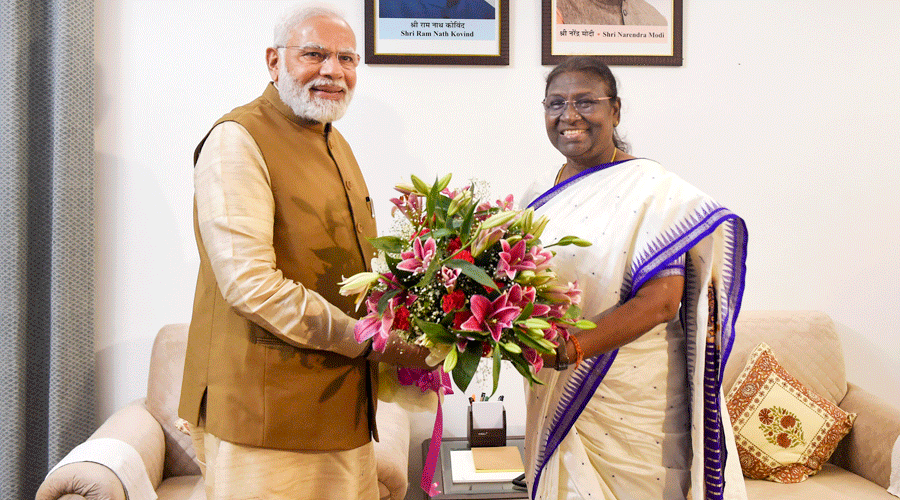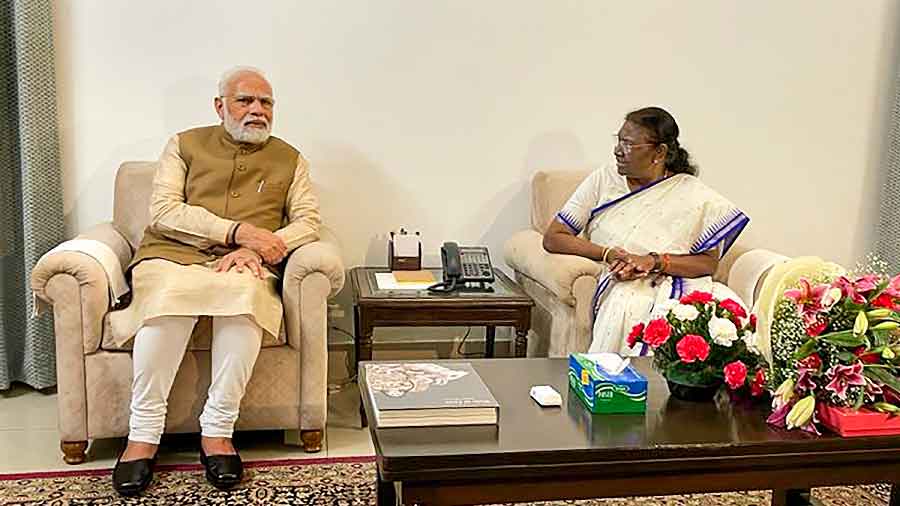Prime Minister Narendra Modi on Thursday hailed President-elect Droupadi Murmu’s win as a “record victory” and thanked the MPs and MLAs who voted for her across party lines, but the polling figures present a different picture.
For all the effort that the BJP is known to put into election management, Murmu’s vote share and victory margin were the third lowest in the history of presidential elections. But the count looks better if only the votes or vote value is taken into consideration.
Opposition candidate Yashwant Sinha bagged the largest number of votes a runner-up has ever received in 16 rounds of elections for the First Citizen since 1952. Again, if vote share is taken into account, Sinha is not the topper in this segment.
With a haul of 676,803 votes, Murmu’s vote share stood at 64.03 per cent, the lowest since the fifth presidential election in 1969. Sinha, who represented a rather rudderless Opposition that got further fractured with the government fielding a tribal woman for the post, got 380,177 votes. This is the largest number of votes an Opposition candidate has received in a presidential election and the margin of his defeat was the third lowest ever: 296,626.

In the last three elections, the margins of defeat were over 3 lakh and before that the BJP-led government of Atal Bihari Vajpayee had managed one of the most impressive wins for a presidential candidate when A.P.J. Abdul Kalam won by 815,518 votes in 2002.
Murmu’s performance was modest despite at least 100 legislators across the country appearing to have cross-voted for her. This trend seemed most prevalent in Assam, Uttar Pradesh, Madhya Pradesh, Jharkhand, Gujarat and Bihar. In other states, there were one or two such
instances. In Puducherry and Tripura, the government appeared to have lost a vote each.
The BJP’s score was affected primarily by the setbacks it had suffered in state elections since 2017. Even in the states that the BJP continues to hold, the party’s numbers have come down in most instances. The choice of a tribal candidate, however, helped shore up the government’s tally, the prime example being the JMM breaking ranks with the Opposition.
The toppling of the Uddhav Thackeray government in Maharashtra was seen as an attempt by the BJP to strengthen its position in the presidential election, among other objectives.
But the number of votes Murmu polled from Maharashtra was far less than outgoing President Ram Nath Kovind’s 2017 tally from the state.
That year, 208 MLAs from Maharashtra had voted for Kovind, which in vote value added up to 36,400. Murmu could manage the support of only 181 MLAs with a total vote value of 31,675. This, when both factions of the Shiv Sena voted for her despite the Uddhav group still remaining in the Maha Vikas Aghadi alliance with the NCP and the Congress.












